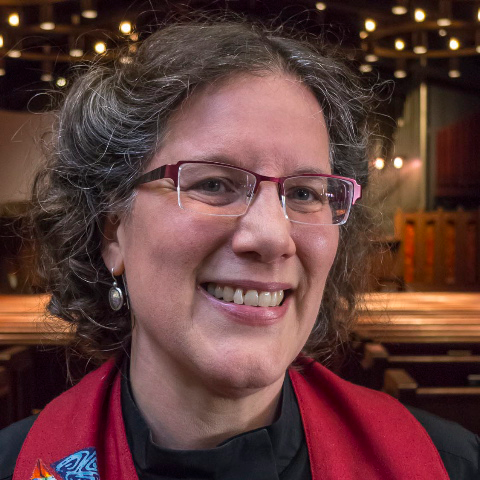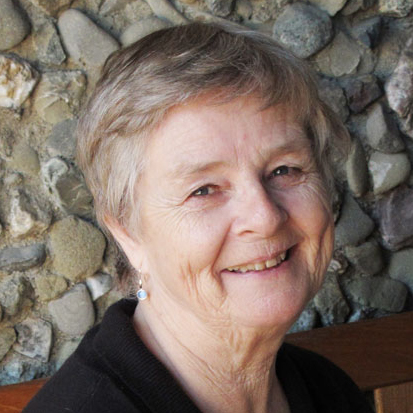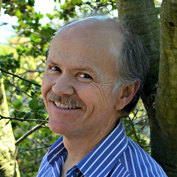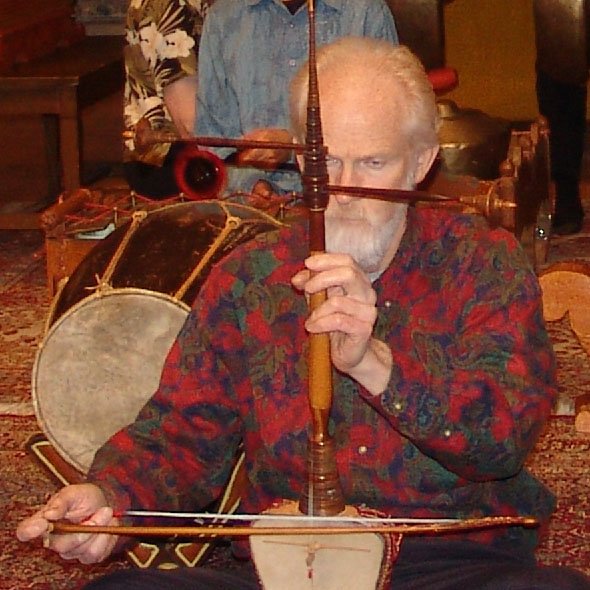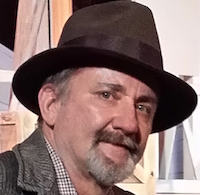{podcast_episode 224}
BEGINNING THE JOURNEY
I asked Jane and Larry and Judy to stand with me this morning. I need people like them. They give me strength and help me find ‘true north’ when I’ve lost my way. As writer Nell Morton said, ‘they help listen me into my truth.’
I lived a good part of my life without understanding the gift people like this offer. When the great traumas of life came – the ones that knocked me over and hurt me – I spent a long while cautious and afraid it would happen again. My doubt and mistrust left me walking through life with sort of a psychic or social limp. Distrust even became something like a self-fulfilling prophecy.
I learned that human beings who experience hurt or trauma, don’t always heal completely and perfectly without help. The same thing is true for congregations.
When I arrived back in August, I started what turned out to be 91 one on one conversations with people here. As a consultant, they serve as my ‘stethoscope’ – I listen for sounds of health. Or signs that some part of our great body is struggling.
I heard much that indicated strong health. But I also – as is true everywhere – heard sounds of old wounds that didn’t completely heal. Sounds that indicate we might be limping along instead of striding boldly.
When I shared the results of these conversations, there were some who expressed concern. Some worried that talking about it would make the discomfort worse – especially as we prepare to search for our next minister. ‘We don’t want to broadcast old wounds,’ some said, as though ministers in search don’t have stethoscopes just like mine.
I want to take a moment this morning and pretend that you – as a single body – came into my office for a check-up – your 18-year check-up. And I’m sharing the results. And I’m going to start with the bad news. So brace yourself. I’m going to give it to you straight: you’re not perfect. To see what I mean, look at the person on your left. They’re not perfect. Look at the person on your right. They’re not perfect. And know they both just looked at you and came to the same conclusion.
Now the good news. Perfect people are annoying. And BORING!! And they have no real need of the love that helps and heals.
Imperfect people sometimes struggle. Sometimes worry. Sometimes stumble and get hurt. They don’t always trust because they remember really well what hurt feels like.
Imperfect congregations – like imperfect people – need love. Imperfect congregations – like imperfect people – LOVE– love. In fact, imperfect congregations – like imperfect people – make the best loving and healing and understanding people – because DEEP DOWN they GET IT!!! They KNOW the need. They KNOW the pain. They want to be PART OF the healing.
Rev. Jane is part of the healing. She is starting our new Pastoral Associates group. Judy and Larry are part of the healing – they are part of the plan to love and listen us all into our truth about the imperfect parts of our history. I encourage us all to surround ourselves with people like this. Become people like this. So that we can learn to live – and love – without a limp. As we move forward.
Come, let us worship together.
HOMILY
In 1997, after just two years of seminary and one year of internship, I began a year-long residency as a chaplain at Toronto General Hospital. In my first week, I found myself on the ‘on-call’ roster. The very first night on-call, I was paged to the ICU. Car accident. A Filipino man named Mangayo (known as Manny). Young. On life support. The family was gathering.
I felt immensely unprepared. This was my first call. I’d never done anything like this before. But I grabbed the on-call booklet, complete with sample readings and prayers and I went.
When I arrived there were over 30 people in the waiting room. Mostly silent. Many holding tissues, crying. I introduced myself.
“Thank God!” said the woman I spoke to. Then she announced to everyone, “The chaplain’s here,” – which only added to my feeling of inadequacy. “We’re a very religious family,” she continued. “Can you pray with us?” she asked.
I looked down at the booklet I had in my hand. On the cover was a verse from the book of John.
In the beginning was the Word, and the Word was with God, and the Word was God.
I felt my brain come to a screeching halt. I had grown up UU and although I had heard this passage a number of times in seminary, I still wasn’t exactly sure what it meant? Or what it had to do with this tragedy? Or how it would help me help those who were feeling helpless?
“In the beginning was the word…”
What little I did know about this passage was that it was a favorite passage of evangelicals. It was ‘the Good News.’ But as I looked around the room, everything I saw told me I stood among people who had just been handed something very different. How could good news enter into such a moment?
<><><>
Most of us have known at least one moment like this where we – or someone we dearly loved – had the rug pulled out from under our lives. And our dreams suddenly went dark. And the person narrating our story fell silent.
UU minister, Kate Braestrup knows. And describes it well.
In 1996 she was a part time writer and full time mother of four children and married to Drew Griffith. In addition to serving as a Maine State Trooper, Drew was studying for the UU ministry – hoping to become a police chaplain.
Early one April morning, Drew left for work and everything changed. On the very roads he protected every day, an oncoming driver lost control, and Kate lost her husband.
She remembered what happened next this way:
Perhaps forty minutes after I had heard the news of Drew’s death, I was sitting in the living room with my friend Monica when the doorbell rang. I was still on the phone with the sergeant so Monica sprang to answer it. A young man stood on the front steps, clad in a spiffy dark suit, his hair neatly combed, exuding a scent of soap and virtue. Holding out a pamphlet, he beamed at Monica. “Have you heard the good news?” For a long second, Monica glared at him, not sure whether to punch him or laugh hysterically. She compromised by slamming the door.
This story explains why it is sometimes hard for us to answer the door in our times of greatest testing. Times when we’re in pain – when we’ve felt great betrayal or broken heartedness come to roost where our dreams were once laid. It’s hard, in such moments, to believe there is any ‘good news’ left in this world. In such tender moments, we can’t bear to open our hearts to disappointment. But we can’t imagine closing our hearts either.
But it can be different. Very different. Kate Braestrup’s story continues.
A few minutes later, the doorbell rang again. This time, I answered it. It was my neighbor, an elderly woman I had exchanged no more than a dozen words with in the ten years we’d lived in Maine. She had potholders on her hands, which held a pan of brownies still hot from the oven, and tears were rolling down her cheeks. “I just heard,” she said . . . My neighbor was the leading edge of a tsunami of food that… continued for many months after Drew’s death. I didn’t know neighbors would come to feed us, men would drywall the playroom, build bookshelves, mow the lawn, change the oil in my car. I didn’t know my house would be cleaned, my story listened to, and that I would not be abandoned to the labor of mourning alone. All I knew was that my neighbor was standing on the front stoop with her brownies and her tears: she was the Good News.
<><><>
The hardest moments in this life are when someone dies. It can be a parent or a partner. It can be a sibling or a friend or a neighbor. Someone who had a sacred place in our lives as a holder of confidences or who understood, accepted and shared our dreams. It can be a pet – especially if they brought us unconditional affection and abiding love through many ups and downs.
But our hardest moments don’t always come from a loss of life. Sometimes what brings us most to our knees is news of a different kind of loss. It might be the loss of a job. Or a home. A goal or even a direction. It might be the loss of our health when we receive a scary diagnosis. Or the loss of our financial security.
Whatever it is, the plan we had – or the story we were trying to tell – about where our life was going is changed. And a frightening uncertainty creeps in. Our next step – even our imagination – becomes palsied by fear. And it seems hard to continue without some good news to jump start us out of our paralysis. Or at least make sure we aren’t left to struggle alone.
<><><>
As the 30 people looked at me, waiting for me to speak, I stared down at the scripture. The inexperienced and frightened side of me – the side that wanted something to hide behind – said I should read it. I was the chaplain, after all. But for the life of me I had no idea what I would say after that.
So, I didn’t read it. Instead, I turned to the woman who asked me to pray – and everyone else looking on – and asked, “Tell me about Mangayo.”
The woman I talked to started… a little awkwardly. I learned that ‘Manny’ was driving home from his job as a restaurant manager where he worked his way up from dishwasher. He was going to school. He was married. He had two children.
Then others joined in. I learned that his name, Mangaya, actually meant ‘playful’ in Tagalog. And that it was the perfect name for him. I learned that he was Catholic and his mother wanted him to become a priest, but he couldn’t because he’d fallen in love. I learned that he lived within four blocks of every relative he had in the world – save those still in the Philippines. I learned that Manny was the unofficial priest of the family – always the first to take care of those who helped take care of each other.
I learned he was studying to become an EMT. He was learning to ‘fix the broken parts of people’ was how he explained it to his niece. This, despite not being very handy fixing things, especially household repairs and everyone laughed together about the well celebrated plumbing story where he flooded the family compound. I heard he always brought the left-overs from the restaurant over to his cousins or his neighbors which is where he was headed when everything went so wrong.
What started soft and slow, grew until most everyone jumped in. There was some laughter, but there were more tears, and occasionally weeping when the pain of the reality came back poignantly for someone, then others turned to comfort them.
I mostly listened, occasionally asking another question. After about an hour, when there was a lull, I offered a prayer – trying to name as many of the things about Manny as I could remember – pointing out how he’d shared his playfulness – as well as his dreams – with everyone. And how, over time, what he’d shared became an unquestionable kind of love – even in times where there were great questions.
Besides the prayer, I really didn’t say much. But they all thanked me and called me ‘Father,’ which surprised me. I didn’t feel very chaplain-y.
<><><>
In supervision the next day, I shared my experience with my supervisor and the other chaplains. I confessed the terror I had felt and feelings of inadequacy and helplessness, not knowing what to say. I told them how I couldn’t bring myself to read the scripture.
My supervisor responded by explaining that scripture to me in a way I had never thought of before.
In the beginning was the word. And the word was with God and the word was God.
He pointed out that ‘word’ is actually translated from the Greek, ‘logos’ which could as easily been translated as ‘reason’ or ‘meaning.’ But he actually preferred the translation, ‘story.’
In the beginning was the story.
And then, because he knew I was a Unitarian Universalist, he challenged me to retranslate the word, “God.”
“Love, I suppose.”
“Fine. What do you have?”
In the beginning was the story. And the story was with love. And the story was love.
And then it clicked. Each of us, at one time or another, experiences a loss. And when that loss is so great it feels like we lose our inherent connection to Love and Life, we sometimes can’t get started again… We can’t remember how our own story goes. We lose our place… our voice… our narrative. He pointed out that what I did that night was simply help the family get jump started back into their story – a story which includes loss… but it’s not fundamentally about loss. It’s about love.
That’s what happened with Kate Braestrup seeing the woman with brownies and tears. The brownies, in that moment, were not the good news. It was the woman whose tears – and broken heart – mirrored her own loss. She was the good news.
Her job was not to fix Kate’s story, or replace it with her story. Her job was simply to help Kate rediscover her place in her own story. Without her husband, she didn’t know where it was. And it would take time and some real soul searching. And maybe more than one pan of brownies.
That is what we are all here to do for one another. You don’t have to be a pastor. You don’t have to know scripture or speak Greek. You don’t have to train in a hospital. You simply have to be willing to do what my supervisor always asked us to do: “Go be helpless with them. Which means, ‘give up trying to be ‘right.’ Or ‘perfect’. These impulses often keep us from being open or empathetic.
Friends, you are in a great story together. The story is WITH Love. And the story IS Love. At one time or another each of you will be the one who loses your place. And at one time or another each of you can be the good news which helps another rediscover the way.
To the Glory of Life.
Copyright © 2015, Rev. Greg S. Ward. All Rights Reserved.







